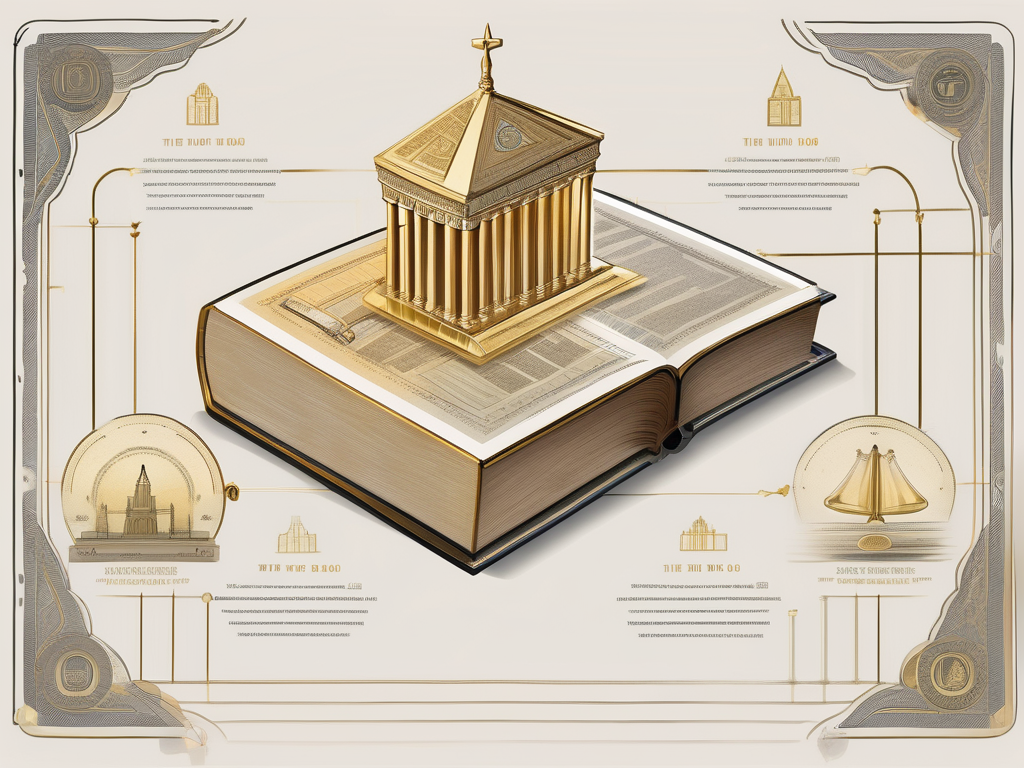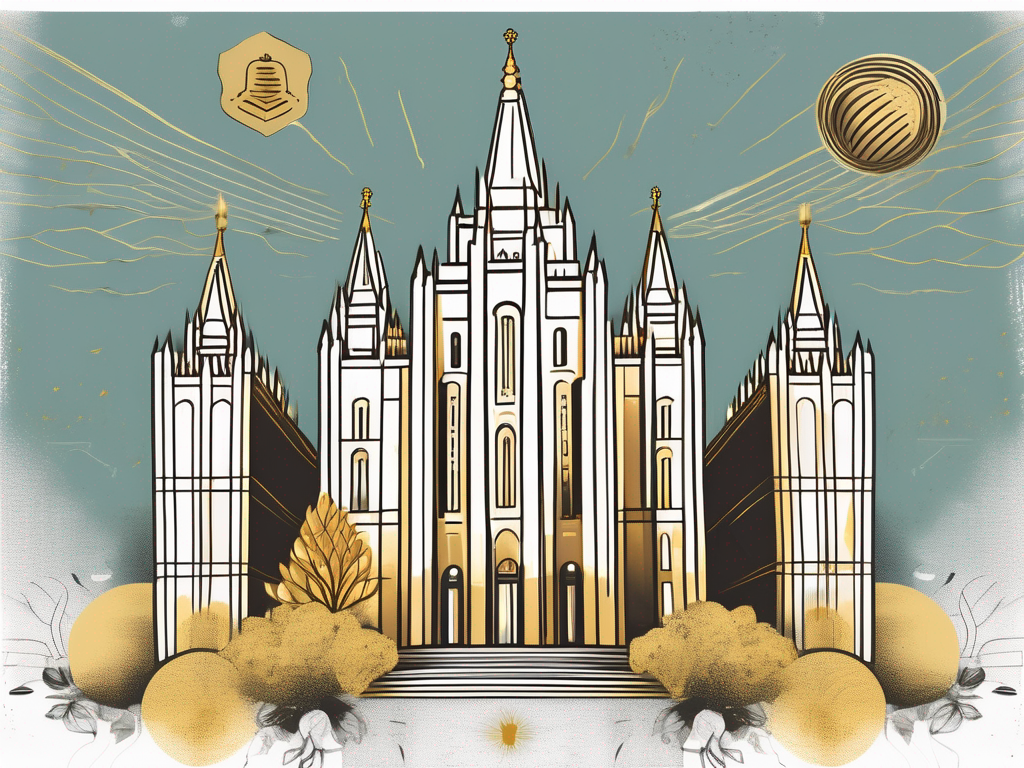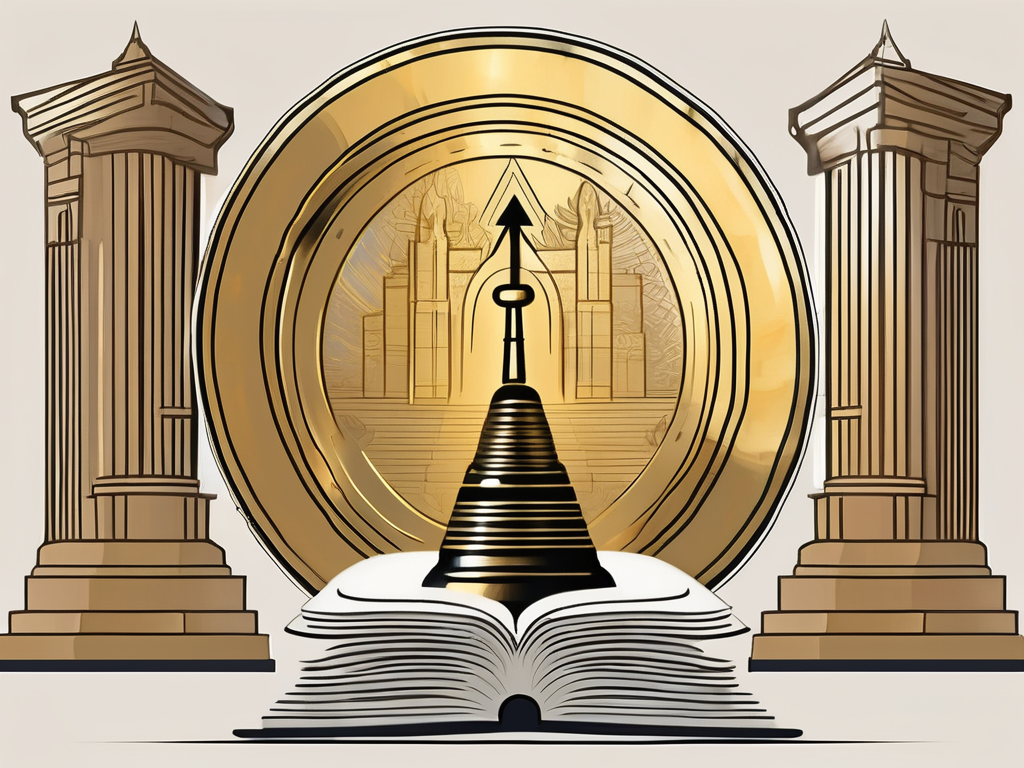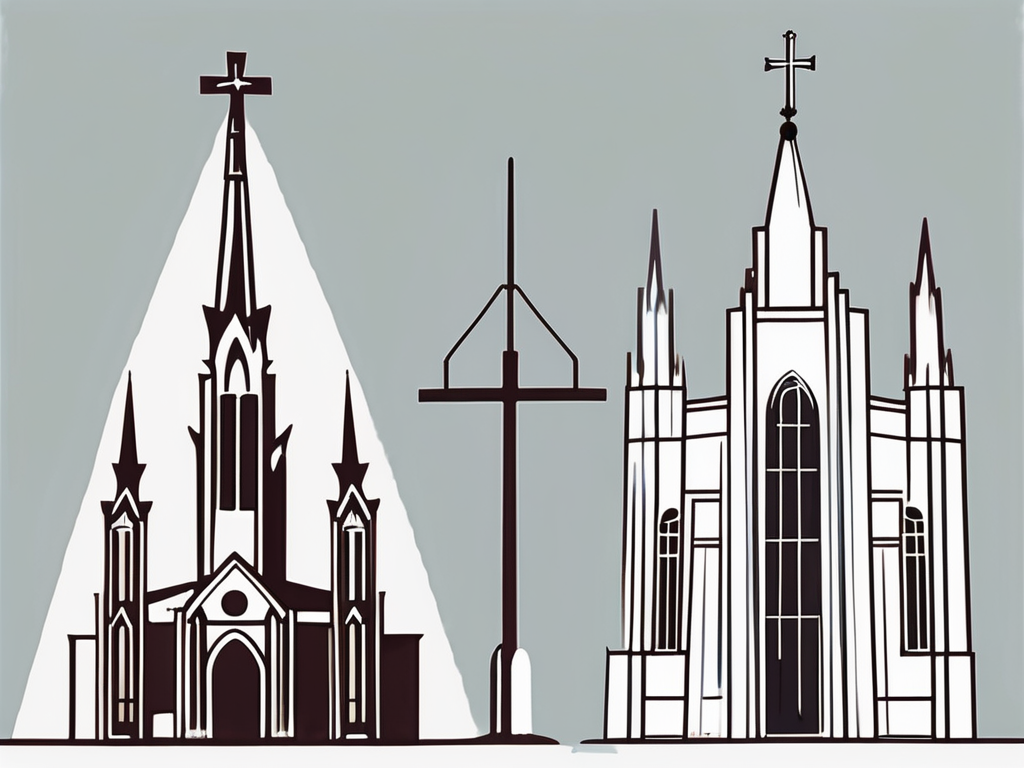Mormonism is a fascinating and complex religion that has captivated the interest of many people around the world. In this comprehensive guide, we will explore the key aspects of Mormon practices, beliefs, and rituals. Whether you are new to the religion or simply curious to learn more, join us on this journey as we delve into the intricacies of Mormonism.
Understanding the Basics of Mormonism
Mormonism, also known as the Church of Jesus Christ of Latter-day Saints, is a religious movement that traces its roots back to the early 19th century. It all began with a young man named Joseph Smith Jr., who was born in New York. Smith claimed to have received divine revelations, which led to the establishment of the Church of Jesus Christ of Latter-day Saints.
One of the most significant events in the history of Mormonism was the translation of the Book of Mormon. According to Smith, he was guided by an angel named Moroni, who directed him to a set of golden plates buried in a hillside. Smith translated these plates, which became known as the Book of Mormon. This sacred text is considered by Mormons to contain the restored gospel of Jesus Christ.
As Mormonism began to gain followers, it also faced opposition and persecution. Many people were skeptical of the new religious movement and its unique doctrines and teachings. However, despite the challenges, the faith spread rapidly, and today it counts millions of followers worldwide.
The Core Beliefs and Teachings of Mormonism
At the heart of Mormonism is a firm belief in Jesus Christ as the Son of God and the Savior of all humanity. Mormons believe that Jesus Christ’s atonement provides the opportunity for individuals to repent, be forgiven of their sins, and ultimately return to live with God.
Mormons also place great importance on the family unit. They believe that families can be together forever, not just in this life but also in the afterlife. This belief is rooted in the idea that marriage and family relationships can continue beyond death.
Another fundamental belief in Mormonism is the concept of personal revelation. Mormons believe that individuals can receive personal guidance and inspiration from God through the Holy Spirit. This guidance can help them make important decisions and navigate the challenges of life.
Mormons also believe in the power of priesthood authority. They believe that priesthood authority, which is the authority to act in the name of God, was restored to Joseph Smith and is passed down through a line of male leaders in the Church.
Furthermore, Mormons affirm the eternal nature of the soul and the potential for eternal progression. They believe that through faith, repentance, and obedience to God’s commandments, individuals can become more like God and eventually inherit all that He has.
Additionally, Mormons uphold the principle of continuing revelation. This means that they believe God communicates with His children in the present-day through modern-day prophets and apostles. These leaders receive guidance and inspiration for the Church and its members.
The Book of Mormon: An Overview
The Book of Mormon holds a central place in Mormon theology and is considered a companion scripture to the Bible. It tells the story of ancient prophets who lived in the Americas and their encounters with Jesus Christ. According to the Book of Mormon, after His resurrection, Jesus Christ appeared to these people and taught them His gospel.
Mormons believe that the Book of Mormon is another testament of Jesus Christ and serves as a witness of His divinity. They view it as a sacred text that complements and clarifies the teachings found in the Bible.
One of the unique aspects of the Book of Mormon is the promise it offers to those who read it with an open heart and a sincere desire to know the truth. Mormons believe that through prayer and faith, individuals can receive a personal witness of the Book of Mormon’s truthfulness. This witness, often referred to as a spiritual confirmation, can strengthen their faith and deepen their understanding of God’s plan.
In conclusion, Mormonism is a religious movement that emerged in the early 19th century. It is characterized by its belief in Jesus Christ, the importance of family, personal revelation, and the power of priesthood authority. The Book of Mormon plays a central role in Mormon theology, serving as another testament of Jesus Christ alongside the Bible. Mormons believe that through prayer and faith, individuals can receive a personal witness of the Book of Mormon’s truthfulness and deepen their connection with God.
The Structure of the Mormon Church
The Mormon Church, officially known as The Church of Jesus Christ of Latter-day Saints, has a unique and well-organized structure that plays a crucial role in the lives of its members. This structure is designed to foster a sense of community, provide spiritual guidance, and facilitate the worship and service of its members.
The Role of the Prophet in Mormonism
Central to the Mormon Church is the role of the prophet, who is seen as the mouthpiece of God on earth. The prophet is believed to receive direct revelation from God and is responsible for leading the Church according to divine guidance. This divine calling is seen as a sacred responsibility and is believed to be essential in maintaining the spiritual well-being of the Church and its members.
The prophet not only provides spiritual guidance and direction but also serves as an example of righteousness and devotion. Through his teachings and actions, the prophet inspires and motivates members to live according to the principles of the gospel and to strive for personal and spiritual growth.
The Organization of the Mormon Church
The Mormon Church is organized into local congregations called wards, which are led by a bishop. Each ward consists of smaller units called quorums and auxiliary organizations focused on different aspects of worship and service. This hierarchical structure ensures that all members have the opportunity to participate and contribute to the various functions of the Church.
Within each ward, members are assigned specific responsibilities and roles based on their age, gender, and abilities. This allows for a diverse range of talents and skills to be utilized in the service of the Church and its members. It also fosters a sense of unity and cooperation as individuals work together to fulfill their respective duties.
Additionally, the Mormon Church places a strong emphasis on family and community. Regular gatherings and activities are organized to strengthen relationships and promote a sense of belonging. These activities range from social events to service projects, all aimed at fostering a spirit of love, support, and unity among members.
The Significance of Temples in Mormonism
Temples hold a special place in Mormon worship. These sacred buildings are considered the House of the Lord, where special ordinances, such as marriages and baptisms for the dead, are performed. The temple is seen as a place of great spiritual significance, where individuals can seek solace, find answers to life’s most profound questions, and draw closer to God.
Entering a temple requires a level of spiritual preparation and worthiness, as it is considered a sacred and holy space. The rituals and ordinances performed within the temple are believed to have eternal significance and are seen as essential for individual and family salvation.
Temples are not only places of worship but also serve as a symbol of the eternal nature of families. Mormons believe that families can be sealed together for eternity through sacred ordinances performed in the temple. This belief brings great comfort and hope to members, as they strive to strengthen their families and build lasting relationships that extend beyond mortality.
Overall, the structure of the Mormon Church, with its emphasis on prophetic leadership, community organization, and sacred temples, plays a vital role in the spiritual growth and well-being of its members. It provides a framework for worship, service, and personal development, allowing individuals to deepen their relationship with God and strengthen their commitment to living according to the principles of the gospel.
Mormon Practices and Rituals
In addition to the core beliefs and principles of Mormonism, there are several practices and rituals that hold great significance within the faith. These practices not only serve as a way to demonstrate devotion and obedience to God, but also provide a sense of unity and purpose within the Mormon community.
The Importance of Baptism in Mormonism
Baptism plays a crucial role in Mormon theology, symbolizing the cleansing of sins and the beginning of a new life in Christ. Mormons believe in baptizing individuals by full immersion as a way to follow the example of Jesus Christ and receive the remission of sins. This sacred ordinance is typically performed when individuals reach the age of eight, as it is believed to be the age of accountability.
During the baptismal ceremony, individuals are immersed in water by a priesthood holder, representing a burial and resurrection into a new life. This act of baptism is seen as a significant step towards salvation and entry into God’s kingdom. It is a deeply personal and transformative experience for Mormons, as they commit to living a life in accordance with the teachings of Jesus Christ.
The Mormon Practice of Tithing
Tithing, the giving of one-tenth of one’s income, is a core practice among Mormons. It is considered a form of worship and an act of obedience to God. The principle of tithing is rooted in the belief that all blessings come from God and that by giving back a portion of their income, individuals demonstrate gratitude and trust in His providence.
The funds collected through tithing are used to support the Church’s operations, including the construction and maintenance of temples, welfare programs, and educational initiatives. Tithing is viewed as a sacred responsibility and a means of contributing to the growth and well-being of the Mormon community as a whole. It is also seen as a way to develop self-discipline and prioritize spiritual values over material possessions.
The Mormon Concept of Eternal Families
One of the most cherished beliefs in Mormonism is the concept of eternal families. Mormons believe that marriages conducted within the temple can last beyond death and unite families for eternity. This idea brings comfort and hope as Mormons strive to strengthen their familial bonds and build lasting relationships that transcend mortal limitations.
Within the temple, couples participate in a sealing ceremony, where they make covenants with God and commit to a lifelong partnership. This sealing is believed to extend beyond mortality, ensuring that families can be together not only in this life but also in the eternities. The concept of eternal families provides Mormons with a deep sense of purpose and motivates them to prioritize their relationships and create a loving and supportive environment for their loved ones.
Furthermore, Mormons believe that through genealogical research and temple ordinances, they can perform saving ordinances on behalf of their ancestors, allowing them the opportunity to accept these ordinances in the afterlife. This practice emphasizes the interconnectedness of families throughout generations and the importance of preserving and honoring one’s heritage.
Overall, these practices and rituals play a significant role in the lives of Mormons, shaping their identity, strengthening their faith, and fostering a sense of community. Through baptism, tithing, and the belief in eternal families, Mormons seek to align their lives with the teachings of Jesus Christ and create a meaningful and purposeful existence.
Mormon Lifestyle and Culture
The Mormon Emphasis on Family Life
The family is regarded as the core unit of society and the most important institution within Mormonism. Mormons place a strong emphasis on family values, such as love, respect, and support for one another. Regular family activities, such as family prayer, scripture study, and weekly family nights, foster unity and strengthen familial bonds.
The Role of Women in Mormonism
Women play a vital role in the Mormon Church. They are recognized as equal partners with men and are encouraged to contribute their talents and abilities in various areas of Church leadership and service. Mormon women value their roles as nurturers, often actively engaged in raising children and creating a loving and peaceful home environment.
The Mormon Health Code: The Word of Wisdom
The Word of Wisdom is a set of dietary guidelines and health practices revealed to Joseph Smith in 1833. Mormons are counseled to avoid substances such as alcohol, tobacco, coffee, and tea. They are encouraged to consume wholesome foods and take care of their bodies, believing that living in harmony with these principles brings physical, mental, and spiritual blessings.
In conclusion, Mormonism encompasses a rich tapestry of beliefs, practices, and rituals that shape the lives of its adherents. From its humble beginnings to its global presence today, the Mormon faith continues to inspire and uplift millions around the world. By delving into the history, teachings, and unique aspects of this religion, we have embarked on a journey of understanding and appreciation for the intricate practices of Mormonism.












